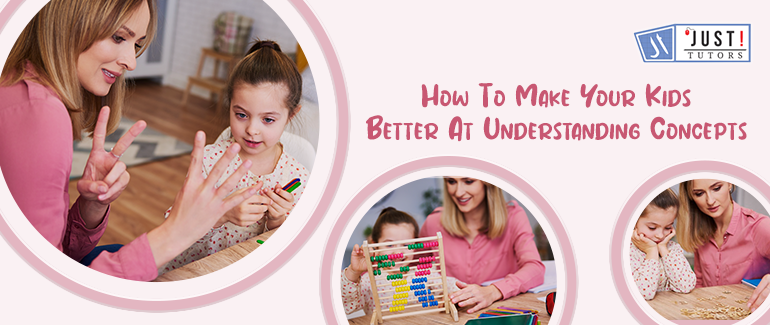Concept-building is a crucial part of learning and it plays an important role in the development of various cognitive skills. For psychologists, concepts are often considered the building blocks of a child’s understanding of concepts.
Concept-based learning encourages students to ask questions and develop their ideas. This method of learning is different from traditional teaching methods, which mainly involve the use of visuals and audio.
Concept-based learning aims to help children understand the core concepts of the subject instead of just sharing information about it. It is a strategy that encourages children to retain what they are taught.
Activities such as Learn by Doing help children develop a deeper understanding of academic and social concepts. Role-playing also helps them connect the dots and understand the foundations of academic and social learning.
Building Blocks of Concept-Based Learning
#1. Being able to hear makes people more open to learning. Having good hearing skills can also help children develop proper language and behavior.
#2. Attention and focus help children avoid distractions and keep them busy all the time. It is also beneficial for them to learn how to manage their time efficiently.
#3. Play skills are important for developing a child’s interests and abilities. They should not expect rewards for their efforts.
#4. Understanding Language develops before speaking. To use language effortlessly, kids need to understand it properly.
Strategies for Concept-Based Learning
#1. Modelling grammar is a great way to teach kids. When kids learn grammar, they will imitate what they hear and speak.
#2. Physically modeling helps children develop the correct behavior and manners.
#3. Tell them what they are doing while they are eating a vegetable. Talk about where food goes after chewing, what’s the importance of
eating this vegetable etc.
#4. Proper instructions help people understand concepts better. Physical instructions help people avoid making mistakes.
#5. Repeat the concept that you want your child to understand in different contexts so that they can develop an overall sense of the importance of that word.
Activities to help kids get better at understanding concepts
#1. Playing games that challenge their minds will help them hone their abilities to think hard.
#2. Reading books with colorful illustrations and stickers help children remember.
#3. Treasure hunts help children develop critical thinking skills by exposing them to various objects of different shapes and sizes.
#4. Give them chores that they should do while they’re doing household chores. This will teach them concepts such as washing dishes and feeding pets.
#5. Ask the child to follow the instructions given to them. These concepts will help the child develop motor skills and confidence.
#6. Hide toys around the room. Play games where the objects are hidden.
#7. Involve songs or short forms to make mental connections.
#8. Use different colored lids for different toys and snacks.
#9. Try brain- exercises like solving puzzles, crosswords, and mazes.
#10. Connect previous knowledge with the new concept.
#11. Ask your child to summarize the concept or teach the learned concept to others.
#12. Break a bigger concept into smaller units. For example, while learning about the water cycle, break the concept into evaporation,
condensation, and precipitation. It is applied to complex household chores as well.
Concept-based learning makes it very easy for children to understand and learn. It eliminates the need to remember things once the exams are over. It also helps retain their confidence and improves their long-term learning.
Being an inquisitive child is very important to develop the skills needed to become successful adults. This is because being able to think critically and logically will help children develop the necessary skills to become successful adults.

